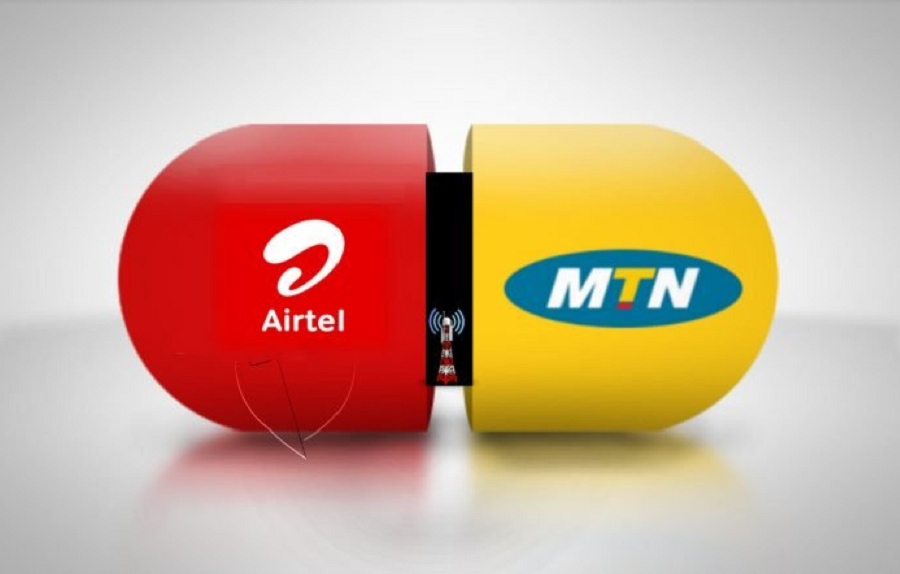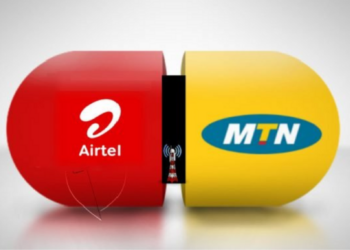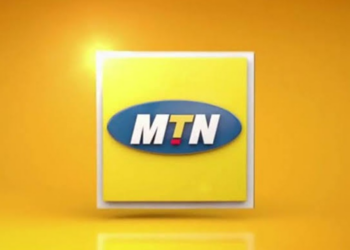Choices and comparisons are never simple, they can be really tough at times. Like JK Rowlings said, “it is our choices that show what we truly are, far more than our abilities.”
This is the dilemma investors find themselves, deciding either of MTN or Airtel, which to invest or buy into.
Both companies have contended toe to toe since the start; for revenue, for profit and for customer base, rivalling at the peak of Nigeria’s telecom space. Recently, they obtained approval-in-principle to launch payment service banks. A feat that carries potency and expectation to foster financial inclusion in the country and fashion a possibility for earning increased revenue.
The yellow network was established in 2001 and its growth has been non-stop. The just-concluded public offer has seen its share price improve to N187 per share, rising over 100% from the N90 in 2019 when it just got listed on the Nigerian Exchange Group. MTN Nigeria’s strength and growth have been conspicuous. First to enlist in the local exchange, first to test 5G, first to digitally trade shares, they have by and large, been pacesetters and are arguably one of Nigeria’s finest companies by market capitalization in the Nigerian Exchange Group
Airtel’s growth, on the other hand, has been equally remarkable. For example, In Q1 this year, they saw their profit position dwarf last year’s by 21.7%, despite Covid-19 and its terrible impacts. In fact, since Bharti Airtel’s acquisition of Zain from Zain Group Africa in 2010, Airtel’s management has shown a certain admirable obsessiveness of becoming Nigeria’s most preferred telecom company. This year, despite the decade of progress, it saw the need to change their CEO, appointing C. Surendran who had previously made a name delivering exceptional performances whilst in charge of Airtel India.
Making a choice between these two super powers is no stroll in the park for even the most experienced of investors. Concern ranges from capacity to improve, consistency, track record and market volatility.
MTN Nigeria’s pros and cons
Before the yellow team first made their announcement to publicly offer a percentage of their shareholding to the general public on December 1, 2021, their share price plummeted briefly. They lost over N386.74 billion in market capitalization.
This is a prime indication of the fleeting nature of investors’ confidence and the volatility of Nigeria’s market. One wrong move and all hell could let loose. The market price tumbled, perhaps because some investors anticipated negative reactions to the offer for sale.
MTN Nigeria however, recovered soon afterwards with the shares gaining N180 billion in barely 16minutes after the offer was opened. Its share price is presently quoted at N187 per share.
Reasons to recommend a buy decision for MTN includes the following;
Dividends – For long term investors, dividend pay-out is the bottom line most compelling reason why anyone would invest. MTN Nigeria has never been shy of paying out dividends. In 2019, shortly after the company was listed on the Nigeria Exchange Group, it paid dividends of N7.92 per unit of share. In 2020, this increased to N9.40 per unit, with a total pay-out ratio of over 90% of profit. It is expected that based on its recent further diversification in ownership and its secured approval to begin operation of payment service banks, dividends are projected to be at least N10 this time.
P/E ratio – Price earnings ratio indicates the multiple of earnings investors are willing to pay for one share of the company. For MTN Nigeria, this is at 13.53%, impressive when compared to its counterparts in the industry. And a huge trigger for investors to positively participate.
Capacity to Improve – With the approval in principle in place, testing the waters for 5G, recently diversifying ownership structure; the management of MTN Nigeria appears strategic, consistent and direct. Their actions give testament to their plans to maintain pole position in the industry. Should this sponsor investors’ confidence in making buy decisions? Certainly.
Consistency, track record and volatility – Management strategy has been instrumental to the consistency that MTN Nigeria has enjoyed especially since it enlisted with the Nigerian Exchange Group. A good management maintains stability, stirs the course and adequately anticipates volatilities
Funding Need – The need to suddenly give out 14% of its ownership to the public for subscription may be seen as some cheap attempt at sourcing needed funds for the bottom-line. This can be a bad sign for some investors. Although MTN Nigeria has stated categorically that this is far from the case.
High Level of Debt – The Company is renowned for strategically relying on loans to drive operations. As at December 2020, MTN’s total external loan was N521 billion, another bad sign for investors.
AIRTEL – pros and cons
Airtel Africa is listed on both the Nigerian and London Exchange markets. With a share price of N955 and a new managing director, the company has positioned itself to compete for the foreseeable future. They recently obtained approval in principle for the launch of the payment service banks (the only other network provider with MTN) granted the approval.
Like MTN and other network providers, Airtel has its own debts and recently signed a USD500 million loan facility with a group of relationship banks.
Unlike MTN this time, Airtel Africa announced plans to buy back the 8.27% minority shareholding in its subsidiary Airtel Networks Limited (Airtel Nigeria). Giving Airtel Africa full ownership over its subsidiary in Nigeria.
While this is the exact opposite of what MTN Nigeria has done recently in terms of public offer, it will be interesting to see, the way these counter courses of action influence investors buying decisions.
Dividend is, for most people, the basis for their ultimate buying decisions and Airtel recently declared a dividend of 2cents for share units. Shareholders have the option of receiving in Naira.
Airtel’s price-earnings ratio presently stands at 12.37%, lower than MTN Nigeria’s 13.53%.
Choices for buying decisions into either of these companies is herculean because they are ‘almost at-par’ in most of their parameters. The major area of difference is in their ownership structure. We will know much effect these diverse decisions have on the companies’ valuation, if they have any effect at all.


















